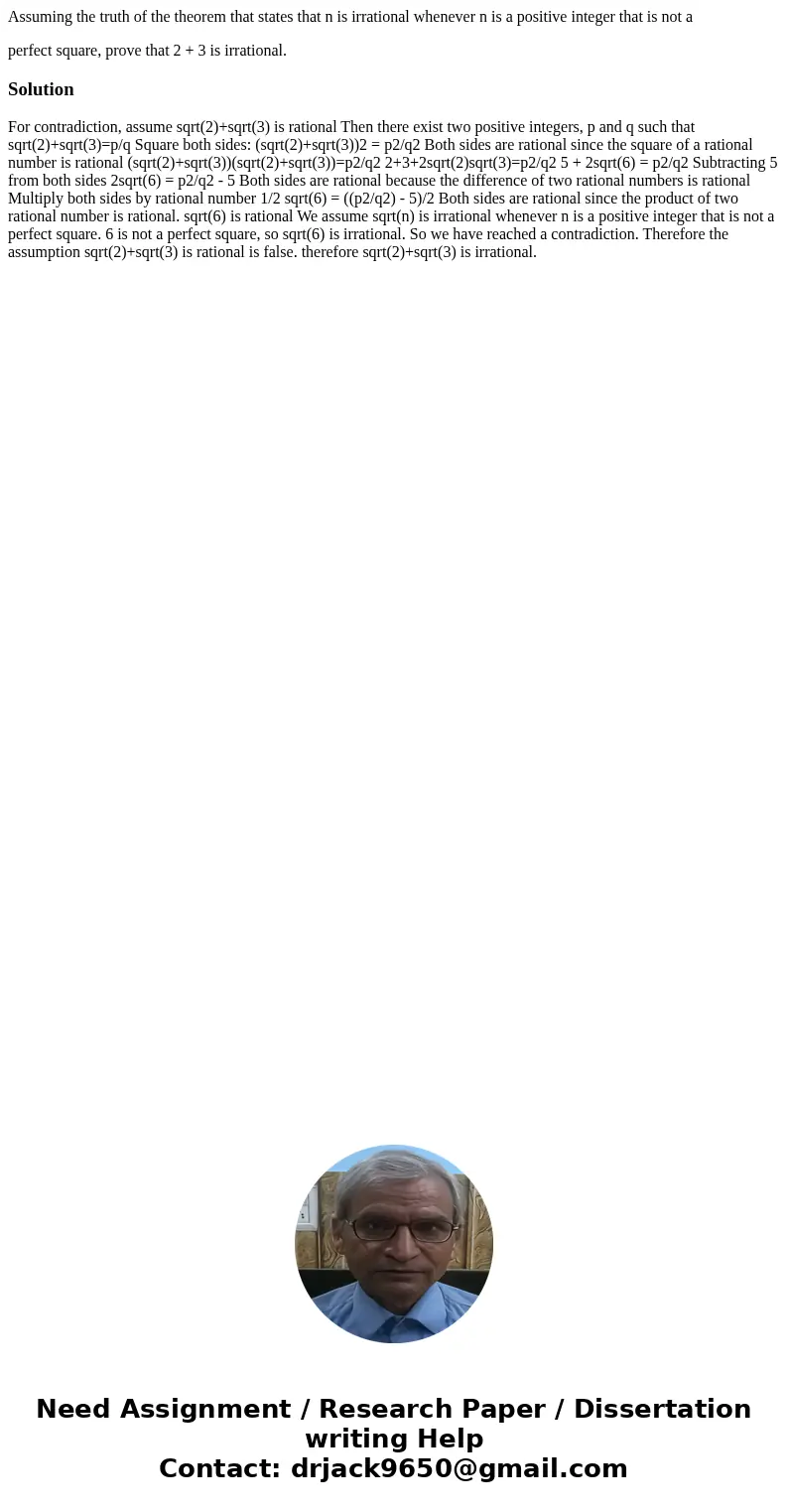Assuming the truth of the theorem that states that n is irra
Assuming the truth of the theorem that states that n is irrational whenever n is a positive integer that is not a
perfect square, prove that 2 + 3 is irrational.
Solution
For contradiction, assume sqrt(2)+sqrt(3) is rational Then there exist two positive integers, p and q such that sqrt(2)+sqrt(3)=p/q Square both sides: (sqrt(2)+sqrt(3))2 = p2/q2 Both sides are rational since the square of a rational number is rational (sqrt(2)+sqrt(3))(sqrt(2)+sqrt(3))=p2/q2 2+3+2sqrt(2)sqrt(3)=p2/q2 5 + 2sqrt(6) = p2/q2 Subtracting 5 from both sides 2sqrt(6) = p2/q2 - 5 Both sides are rational because the difference of two rational numbers is rational Multiply both sides by rational number 1/2 sqrt(6) = ((p2/q2) - 5)/2 Both sides are rational since the product of two rational number is rational. sqrt(6) is rational We assume sqrt(n) is irrational whenever n is a positive integer that is not a perfect square. 6 is not a perfect square, so sqrt(6) is irrational. So we have reached a contradiction. Therefore the assumption sqrt(2)+sqrt(3) is rational is false. therefore sqrt(2)+sqrt(3) is irrational.
 Homework Sourse
Homework Sourse